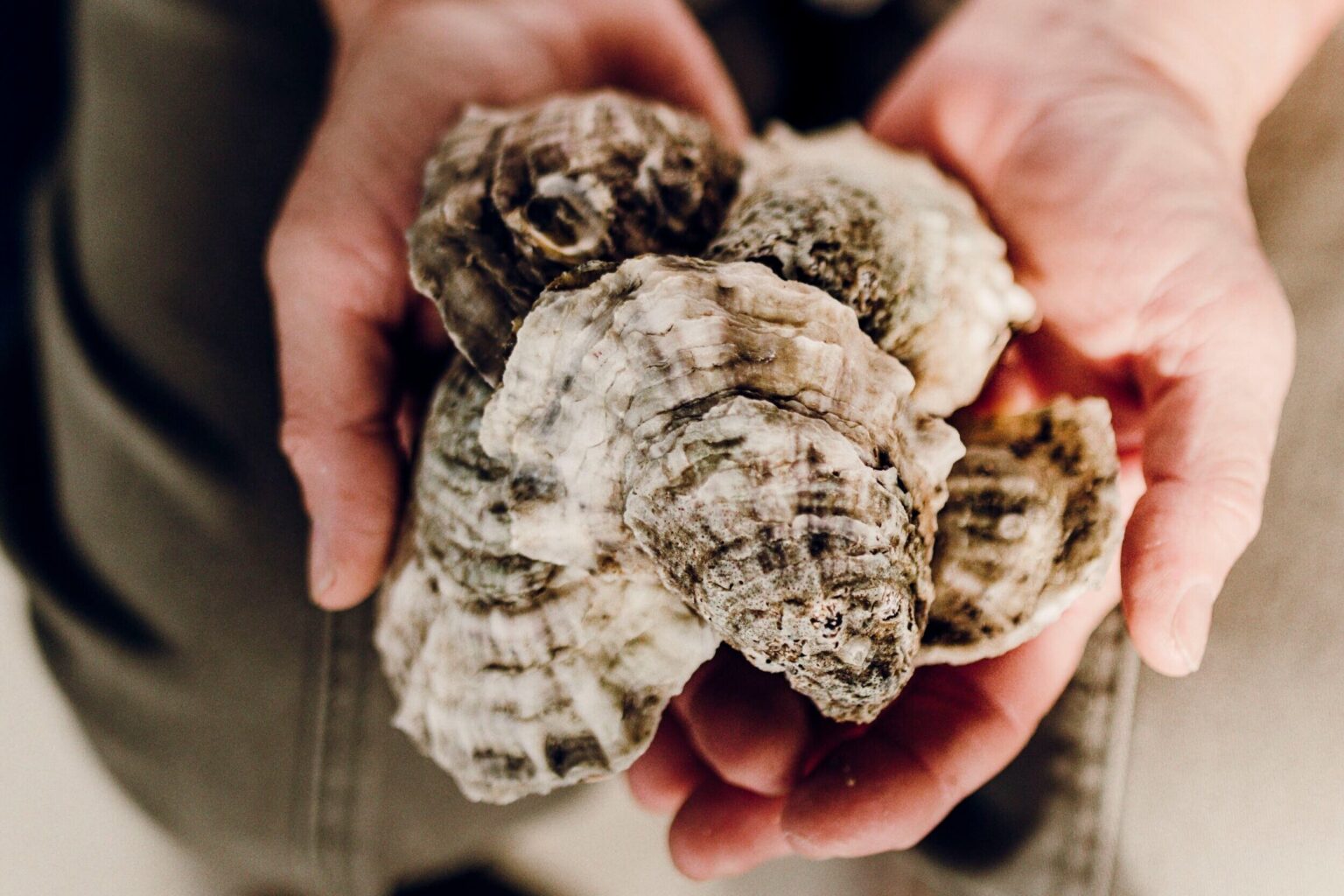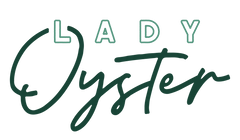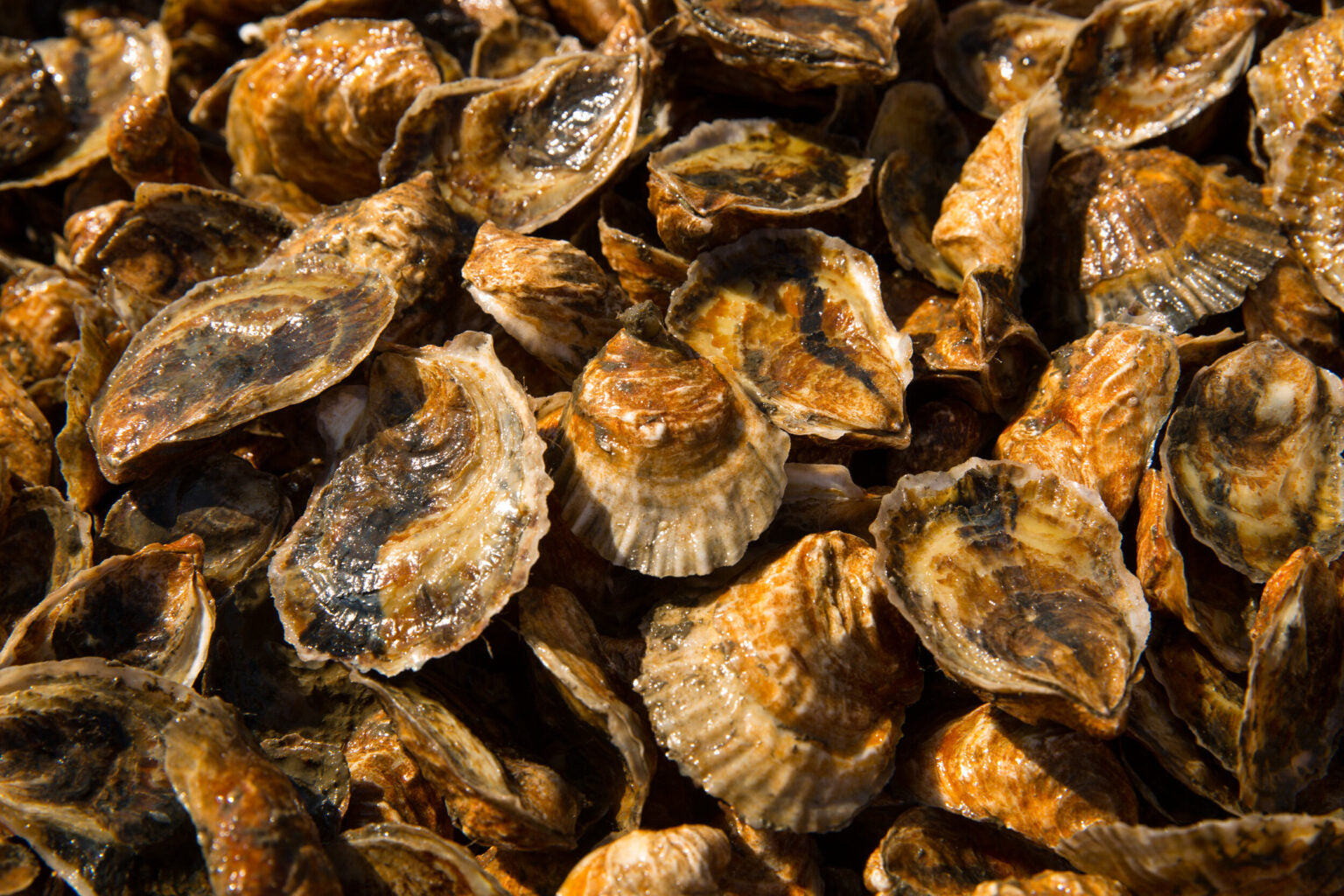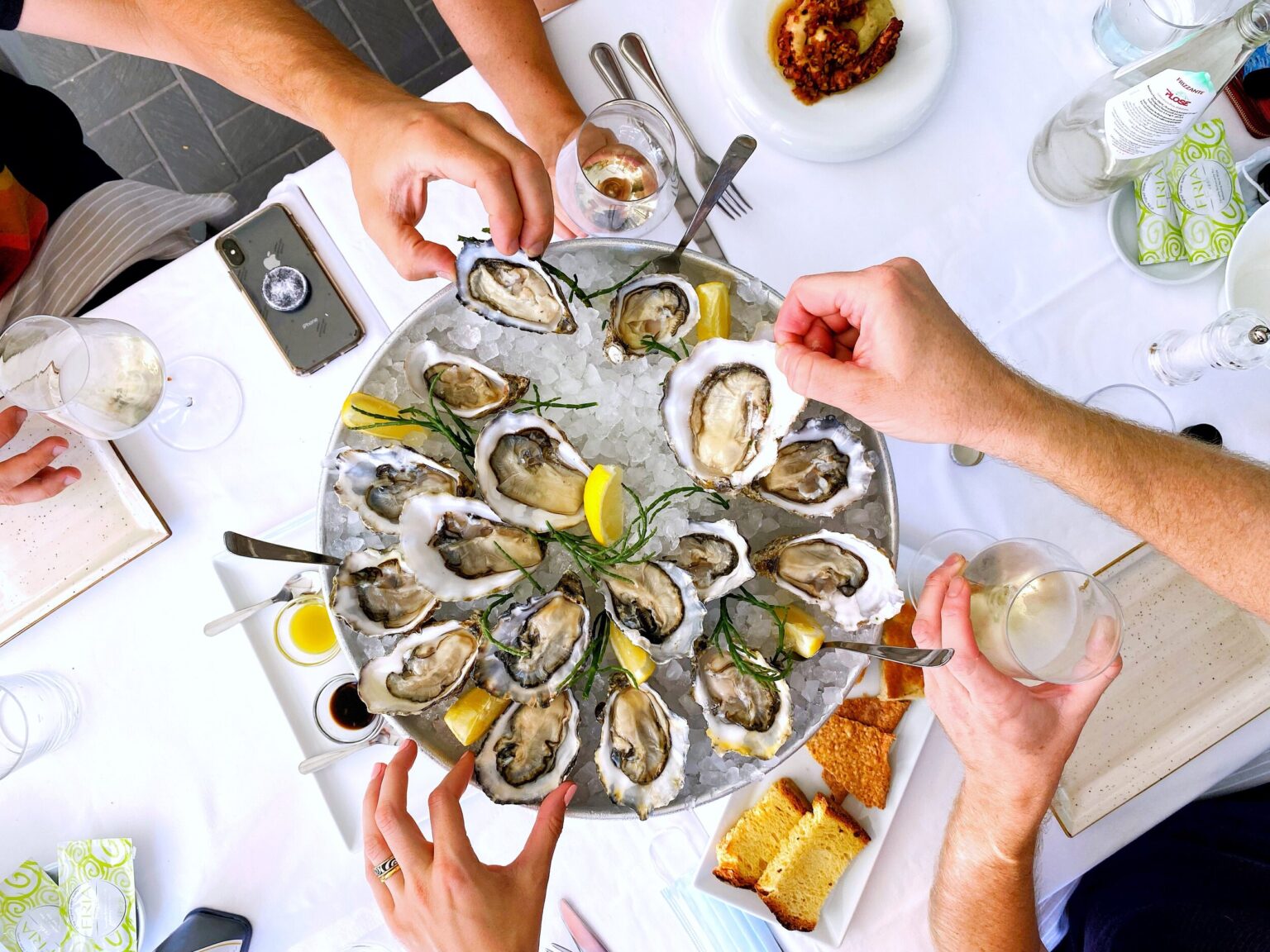The Blind Oyster Farmer | Michael Barnett’s Story of Resilience Through Oysters

I’m thrilled to unveil this incredible story of willpower with all of you! We’re switching up the format for this one, so please enjoy the audio version below. For those who still prefer to read, I’ve shared the transcript below.
Transcript:
Hi everybody, and welcome to Lady Oyster, a blog that celebrates all things oysters and the people who create a community around them. I’m Virginia Shaffer, and today we’re sharing a story about someone who overcame adversity, by way of an oyster farm.
Some of you may know that in addition to blog, I’ve been working towards publishing a book on the people pioneering the oyster industry in North America today. There’s something special that happens when I conduct interviews. The stories I’ve been documenting unravel to other stories, that I don’t always anticipate hearing. The web of the oyster industry reaches further and further with every conversation, but the beauty of that, is that I get to dig deep and find smaller subjects that inspire me.
One of the stories I’ve documented for the book is Deborah Keller’s. She’s an oyster farmer based in Oyster Bay, Florida, near Apalachicola, and goes by “Keller” but also “Oyster Mom” locally. “You only have one Mama,” she told me! Now, that’s a great line.
Keller took her leap into oyster farming through a job training program sponsored by the Wakulla Environmental Institute. It was designed to increase jobs in the area through sustainable practices. Keller’s first few years on her farm were met with a bit of trial and error while she adapted to her lease and found her own rhythm in growing oysters. But what I’m about to tell you isn’t totally Keller’s story. As she and I were wrapping up her interview, she paused, and told me that she forgot to talk about someone important to her success when she first started out. She told me about a man named Michael. Here`s Keller.
Keller: I didn’t mention this. My first employee – he wasn’t an employee, my first helper. He wouldn’t take any money. The first year I didn’t have any oysters – they were the school’s oysters essentially, the Wakulla Environmental Institute. My parents came down and they were very supportive as they have always been in my life. They were very interested and I took them out on the boat on a December day that was 34 degrees. Crystal clear blue skies, beautiful day, other than freezing cold. I took them out on Ginny [that’s Keller’s boat] to work the oysters, and the next day, we had to deliver some roasted nuts to this guy whose mother lived in my parents’ town. She’d given them some nuts to take down and give to Michael.
Well, we go to give these nuts to Michael and he was blind. 100% blind, and he had just become blind at age 54, and Mom and Dad were giddy about being out on the oyster boat and telling the story about what happened out there. Michael turned to me and said, “do you think I could do it?”
I was like, “I don’t know… I don’t know, but we’ll give it a try!”
Long story short, Michael went out on the boat with Keller to work the farm that day. On the way home, Michael asked Keller to take him to a store. He wanted to purchase bib overalls so he could get out on the water too.
Keller: “He was addicted, right away.”
Keller remembered when her husband, Jack, taught Michael how to shuck.
Keller: “My husband taught him out to shuck an oyster. So this blind guy learned how to shuck an oyster. He wouldn’t take any money, I paid him in oysters– he shucked his own oysters and made amazing meals with oysters. And so, we were sitting here and saying that if we could teach a blind guy how to shuck, we can teach anybody to shuck.
Michael stayed with me for a year, he had just become blind and he was kind of depressed. This lifted him out of depression and made him realize that he could live on his own, get out, and start living again. It was great, it was an incredible experience for me to learn and it helped me organize my farm too. You know, he couldn’t see anything so I had to describe different things, it was great.”
I could begin to understand how oysters, being such a delicious food, along with the farm experience of fresh air and the water, would so strongly engaged Michael’s senses, as it does with so many of us.
Keller: “He did everything I did except for driving the boat. I did let him drive it once, but that was it. That was fun too. He’s amazing. He now lives up in my hometown of Pennsylvania. He hates the Winter and keeps saying, I should have stayed, I should have stayed!”
After hanging up the phone with Keller, I was fascinated by Michael’s story. He went through quite a lot losing his sight later in life, and oyster farming is not an easy profession for anyone. I found it really courageous, but getting to know Keller, I could understand that she was the right person to be his partner in that journey. Keller is kind and brave herself.
I decided that I wanted to hear Michael’s side of the story. Despite a difficult loss, he still took advantage of an opportunity that led to a new perspective and a wonderful friendship. And that’s what’s special about this story. The work was the work, but his time on the lease, in his words, was therapeutic. It helped him understand that he could still achieve so much.
Keller introduced me to Michael, who is now living back up north, in Pennsylvania. I gave him a phone call one afternoon, and we spent almost two hours talking about his experience. We began the conversation with what those initial moments were like when he lost his vision. Here`s Michael.
Michael: “It was 2013. November of 2013. It was tough. I was 51 and I had changed careers at that point. I was 51 and had took a new job in Hartford, Connecticut. I had some background in mechanical as far as boilers and pressure valves and stuff. I still had to go to engineering school up in Hartford. I lived up there for a while and it happened right when I started. It happened in my left eye first. I had to brush up on algebra because it had been so long since I touched it. So I went to tutors and stuff and it was strange, a painless thing like an eyelash in my eye and things kept getting blurrier and blurrier.”
Michael went through a series of tests. They tested for everything. As Michael said, he didn’t feel pain, but it was very frustrating and scary. He was finally diagnosed with something called ischemic optic neuropathy (also known as ION). It’s when the blood supply to the eye’s optic nerve gets blocked. Your optic nerve is what sends signals to the brain, and your brain turns those signals into images that you see. With ION, the optic nerve faces irreversible damage, resulting in vision loss.
Michael: “Mine’s like, my vision is like looking through a frosted windshield. Nothing at night.”
Michael continued to tell me what he did after that happened.
Michael: “Right after that, my dad came up and took me down to Florida. It was about a month or two before I got involved with Lighthouse in Tallahassee, which was as school for the blind folks to help them get readjusted and teach them different things. I did everything that I could. I learned brail which people in their 50’s who just lost their eyesight don’t often learn brail, but I wanted to do everything I could to just keep busy.”
Prior to Michael’s move to Florida, he was an avid fly fisherman, and visited the Gulf quite a lot for vacation. Aside from the time spent fishing, he loved eating oysters.
Michael: “I’ve been to Florida a lot and I love oysters. Every time I went there before the big hurricane wiped out all the oyster business in the Gulf, I’m talking late 80s, early 90s, we’d go down to Florida a lot and we’d go down to the pier and go out on the pier, sit there and eat fresh oysters and drink beers and I thought – well this is awesome! You don’t get that up here.”
His chance encounter meeting Keller was after about a year living down in Florida and attending Lighthouse. He told me the same story that Keller had shared about their visit to drop off a few things. He continued:
Michael: “When Keller and her parents came by to talk about that, I had no idea about farming oysters at the time. That was new for them. I thought you know, I’d really like to go on the boat with them. Mind you, it was January and it was a cold winter down there.”
After Michael’s day with Keller on the boat, he decided that he wanted to get involved in the operation and stay active.
Michael: “I said “I’ll do what I can for ya, and that’s how it started. I just wanted to keep going out with her, for oysters. I wanted oysters.”
Michael and Keller developed a routine, but it took some getting used to. As Keller mentioned, she had to learn how to describe her gear in new ways that made sense to Michael. Michael also learned a few lessons, like the importance of wearing gloves.
Michael: “What was funny was that I sat out on the back of the boat. Her lease for the first time was very shallow. And you could just pull the baskets in from the boat. My job was to sort them and try to pick out the legal size in my hand. They kept telling me to wear gloves but I never wore gloves. I needed to feel because that’s how I could see – with my hands. I had cut myself because they were sharp. I had no idea. I was bleeding on my fingers and they had to clean it all up. I didn’t even know it. I got some gloves from then on.
My feel is what I went by. The boat, the sensation of the boat out on the bay, rocking and all that, I became very adapted to that. Not losing my balance. I was always proud of myself. Since I lost my vision I only fell one time, that was in her boat. I stepped on a PVC pipe, we were extending the lease of the farm and I went down. But that was the only time I went down.”
If there was another good lesson he learned, it was finding the right shoes.
Michael: “I tell ya, you gotta be careful too I dropped a whole basket of oysters on my big toe. I forget what I was wearing. Oh, just water shoes! I lost my big toe nail – I’m still suffering from that thing! You have to be careful. Crocs are the best thing on the boat. You don’t have much protection but more than the water shoes.”
You know crocs get a bad wrap when it comes to fashion but man, they serve a purpose.
Michael: “I’m wearing them now!”
I asked Michael if he was ever nervous working out on the water. To this day, I still get nervous out at sea. I wondered if those thoughts crossed his mind.
Michael: “That lease she had was deep, and at times you had to swim because you couldn’t touch. I was always leery of sharks and stuff, or stepping on something. I’d tell her I said, look, I’m out here doing the heavy work. You just keep an eye on any fins!”
Michael shared with me how important it was to have his independence. He said that he never wanted to be a burden on anybody. Having that autonomy was valuable to him. Working alongside Keller gave him more confidence that he could still live his life on his own terms.
Michael: I considered working on the oyster farm as therapy for me. I felt good doing it, and able to do something. That was the big thing for me. And working with Keller was a blast. You know, she was new to it too, we had our escapades and some stories about what would happen on the bay. Getting stuck, running out of gas, me trying to fix things when I couldn’t see, being out there on storms. We had a lot of stories.
She had two gas tanks on the boat. A hose was hooked to a gas tank that ran out and we’re drifting away. I could not get that clipped into the full tank. It was a different type of connection. We started pouring gas from that tank, into a cup, into the other tank and we’re just drifting. We’d get stuck all the time. Especially in the winter time, the tide was really low there. It was quite a boat trip to get to just a little channel. The tide was so low we got stuck and we had to sit there for a while. She had these expensive fancy glasses that got lost, I forgot the brand name but we named the bay after the sun glasses. Those were just some of the things that happened to us!”
I asked Keller about the sunglasses. Gucci, she told me, her only designer pair. Gucci Bay likes the finer things in life! As I continued my conversation with Michael, I soon found out that Keller and Michael weren’t alone on the boat. There was another partner. A furry partner. Someone who to this day, follows Michael wherever he goes.
Michael: “I have a guide dog. He keeps me straight. Oh, he’s the oyster dog! Keller hasn’t told you about the oyster dog. He went with us! She loved him and he loved her! His name is Topper. He is a yellow lab but he’s white. The color of an oyster! We went to a lot of events. Of course I learned how to shuck oysters, so I’d sit there and shuck oysters with my dog sitting next to me. I almost felt like a circus attraction there for a while but I didn’t mind.”
You heard that right. Michael knows how to shuck oysters. Like Keller mentioned earlier, her husband Jack taught him. It made me laugh at how sheepish I was when I first learned how to shuck oysters. But without vision? Now, that’s next level.
Michael: “Whatever I did, I wanted to do it well. No matter how long it took me to learn how to do it. That’s just how I’m programmed. If I can get an oyster I wanted to be able to shuck my own oyster. Some of those beginning ones weren’t that pretty, that’s for sure, but I got the job done.”
Michael really enjoyed working with Keller. He talked to me about how much he missed it and if he had the opportunity, he’d be right back down on the boat with her. Now that he’s moved back to Pennsylvania, the pandemic has prevented him from taking the trip back down. But we talked about how Keller has upgraded her gear quite a bit since those early days.
Michael: “Last time I talked to her, she got a new boat and a whole new process. I said, ‘geez, life would have been a little easier if we had that in the beginning!’ Now she’s got the tumbler on the boat the crane to life the baskets, I was like geez, Keller!” But it was good. It takes time to get to that point in your business.
When she was working full time at the Nature Conservancy, we would do it after work and of course every weekend she had to get oysters to market. We would drive out past Apalachicola to take some oysters to… I forget who it was, but I loved that road trip and going out there to that guy. I wish I could remember who that was. She would know. We sold a lot of oysters to him but then she started getting her own processing going, and now she just sells herself. She’s very ambitious, and I encouraged that. We grew a lot of oysters, sold a lot of oysters, and she’s still doing it. Hats off to her! She wasn’t afraid to do anything. I was right there with her.”
[Editor’s Note: Keller mentioned to me that Michael was thinking of Tommy Ward of 13 Mile Seafood in Apalachicola. “An icon himself,” she said.]
Michael went on to tell me about Apalachicola, and how much he loved bar hopping, especially when his daughter came to visit. He enjoyed introducing his family to what he was doing, and they loved it. We continued to share our dreams of warmer weather and commiserated over northern living in the winter. I could tell how much Michael missed the water. He said he’s lost all of his callouses at this point, so he’s definitely overdue for a trip.
Michael passes much of his time with audio books. Native American History, biographies, and anything written by Tolkein are some of his favorites. He might be the most well-read person you’ll ever meet. He told me he had to retrain himself to finish one book before starting another and I agreed that it’s something I have to get better at doing myself. Michael said that the hardest part is actually finding the book he wants to read.
Michael: “Even if I know the name of the book and the author and type it in, it’ll say 654,000 and you have to go through the list until you find the right one. But you know, I have time.”
I told him that I might have a good book for him in the future, which may cover some history I think he’ll enjoy. We’ll see. But what I know for sure is that Michael has made his own bit of history by taking a chance one day and asking Keller for that boat ride. It’s what this industry does for each other that makes a difference. You don’t have to see an oyster to feel the community around it. The shared joy of the open water, the mutual love of brine, and a willingness to lend a hand and try new things will always be a part of the oyster story.









